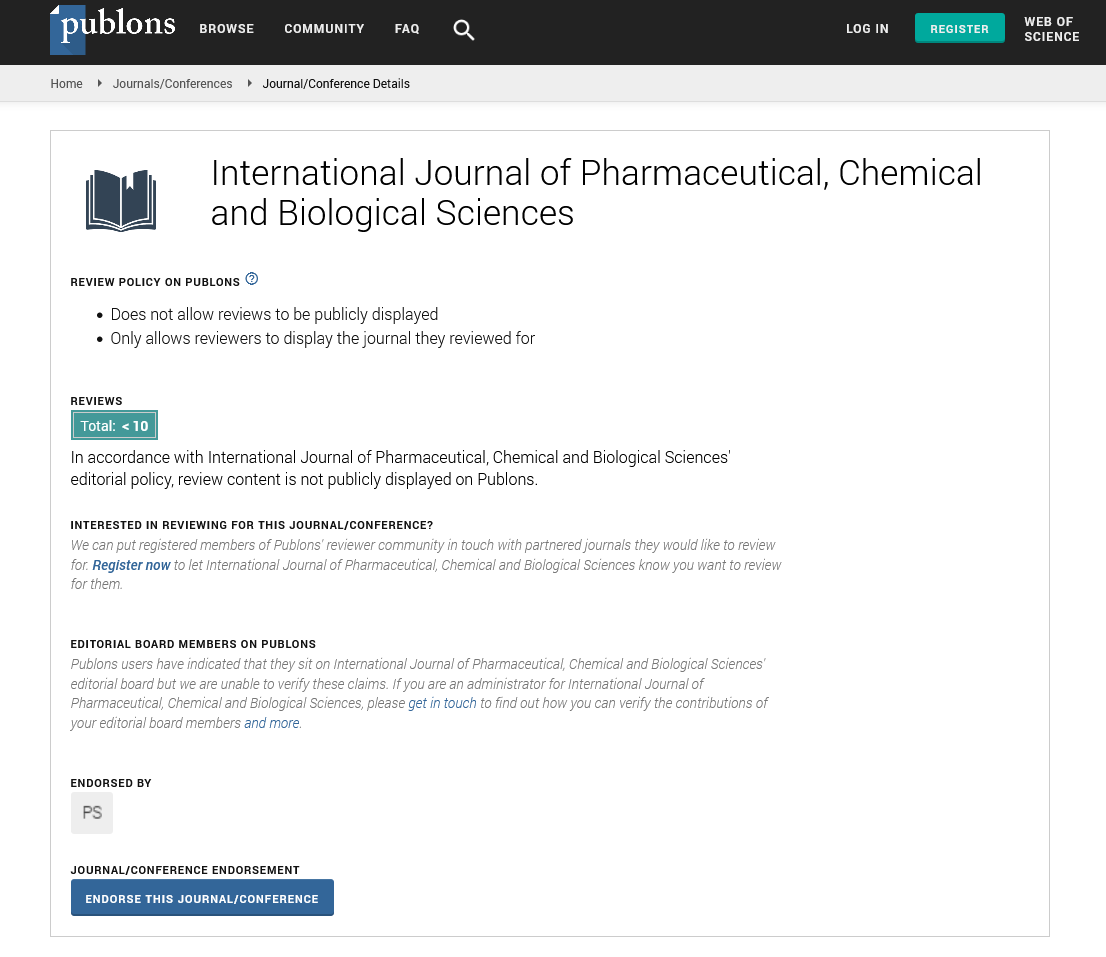Commentary - International Journal of Pharmaceutical, Chemical and Biological Sciences ( 2023) Volume 13, Issue 2
Exploring the Fascinating World of Phytochemistry
Rose Jackson*Rose Jackson, Department of Chemistry, University of Chicago, USA,
Received: 31-May-2023, Manuscript No. ijpcbs-23-113773; Editor assigned: 02-Jun-2023, Pre QC No. ijpcbs-23-113773 (PQ); Reviewed: 16-Jun-2023, QC No. ijpcbs-23-113773; Revised: 21-Jun-2023, Manuscript No. ijpcbs-23-113773 (R); Published: 28-Jun-2023, DOI: 10.36648/2471-9668-13.2.5
Abstract
Description
Phytochemistry, often referred to as the chemistry of plants, is a captivating and multidisciplinary field that delves into the chemical compounds produced by plants. These compounds play crucial roles in various biological processes and have far-reaching implications in areas such as medicine, agriculture, and ecology. In this brief exploration of phytochemistry, we will uncover the significance of this discipline and its impact on our lives. Plants are astonishingly diverse organisms, and their chemical repertoire reflects this diversity. Phytochemistry is concerned with the identification, isolation, and characterization of the numerous chemical compounds synthesized by plants. These compounds include alkaloids, flavonoids, terpenoids, and phenolic compounds, among many others. One of the most significant contributions of phytochemistry is its role in drug discovery and development. Many of the compounds found in plants have potent medicinal properties. For centuries, traditional herbal remedies have been used to treat various ailments. Modern phytochemical research has validated and enhanced our understanding of these traditional practices. For instance, the alkaloid morphine from the opium poppy (Papaver somniferum) is a powerful pain reliever, while quinine from the cinchona tree (Cinchona officinalis) is an essential treatment for malaria. Moreover, the study of phytochemistry has led to the development of numerous pharmaceutical drugs. Taxol, a compound derived from the Pacific yew tree (Taxus brevifolia), is used to treat various cancers. Aspirin, originally isolated from willow bark (Salix spp.), has become a ubiquitous pain reliever. These examples illustrate the potential of phytochemistry to uncover novel compounds that can benefit human health. Phytochemistry also plays a pivotal role in understanding plant interactions within ecosystems. Chemical compounds produced by plants can deter herbivores, attract pollinators, and inhibit the growth of neighboring plants. These chemical interactions influence plant survival and reproduction, shaping the composition of plant communities. For instance, some plants produce secondary metabolites, such as alkaloids or terpenoids, as a defense mechanism against herbivores. These compounds can be toxic or unpalatable to potential grazers, thus increasing the plant’s chances of survival. Additionally, certain plants release volatile organic compounds that attract pollinators, facilitating reproduction. In agriculture, phytochemistry is employed to develop strategies for pest control and crop improvement. Plant compounds can serve as natural pesticides, reducing the need for synthetic chemicals that may harm the environment. Additionally, phytochemical research aids in the breeding of crops with enhanced nutritional content or resistance to diseases. While phytochemistry has made significant strides, several challenges remain. Identifying and isolating plant compounds can be laborious and time-consuming. Additionally, the ecological and evolutionary significance of many compounds is still poorly understood. Future research in phytochemistry should focus on addressing these challenges. Technological advances in analytical techniques can streamline compound identification. Furthermore, interdisciplinary collaboration between botanists, chemists, ecologists, and pharmacologists is crucial to uncovering the full potential of plant compounds. Phytochemistry, the study of plant compounds, is a multifaceted field with profound implications for medicine, ecology, and agriculture. From the development of life-saving drugs to the understanding of ecological interactions, phytochemistry continues to enrich our knowledge of the natural world and enhance our lives.
Acknowledgement
None.
Conflict Of Interest
None.

